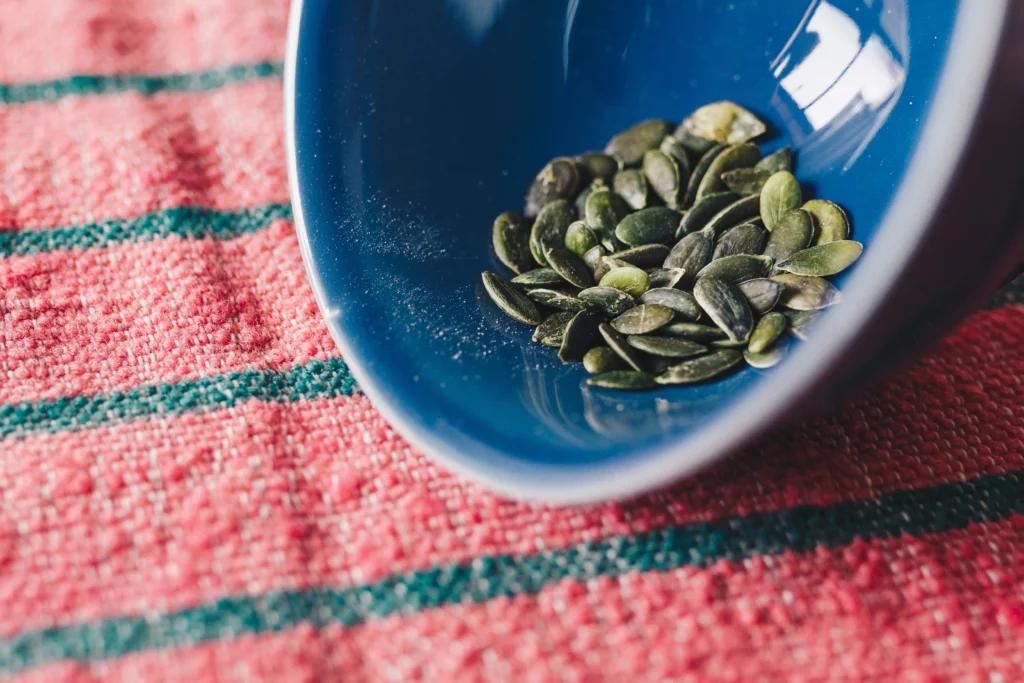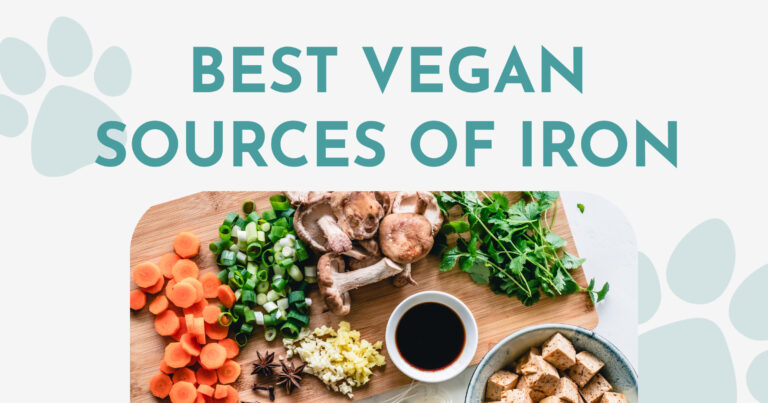Where do you get your protein? That’s a question you have probably heard hundreds, if not thousands of times. If I could have a penny for every time I’ve been asked that question over the years, I would be a millionaire.
But protein deficiency isn’t the only thing that worries people about a vegan diet. Iron is another thing that people assume is lacking from a plant-based diet. It’s good to know that major medical institutions such as The British Dietetic Association and The American Dietetic Association have stated that a well-planned vegan diet can support healthy living for people of all ages.
That means we can get all the necessary nutrients from a plant-based diet, including iron. But how much iron do we need, how can we get enough of it on a vegan diet, and what are the best plant-based sources of iron?
Table of Contents
Iron – what is it and why do we need it?
Getting enough iron is necessary as it’s an essential mineral to support the growth and development of our bodies. Iron is a crucial component of hemoglobin, a protein needed to form red blood cells. Red blood cells are fundamental to carrying oxygen from your lungs throughout your body. So, to put it simply, the job of iron is to transport oxygen through the body.
It is easy to see why iron is so essential to our bodies. However, iron deficiency is one of the most common nutrient deficiencies amongst people, vegan or not. Every year, it affects around 4-5 million people in America alone – from kids to adults alike.

The most common symptoms of iron deficiency anemia are
- extreme fatigue
- lightheadedness
- dizziness
- headaches
Having dealt with low iron levels in my childhood, I can say it is far from fun. Fortunately, it is not mission impossible to get the needed amount of iron from our food, even when following a plant-based diet. With a well-balanced diet, it’s pretty simple.
Recommended daily iron intake
Let’s see how much iron people need daily, according to the National Institutes of Health. It is important to note people following a vegetarian/vegan diet should consume 1.8 times more iron than the average recommended daily amount. More about why a bit later.
- Adult men 19-50 years – 8mg per day. 15mg per day for vegans.
- Adult women 19-50 years – 18mg per day. 32mg per day for vegans.
- Adults 51+ years – 8mg. 15mg per day for vegans.
- Pregnant women – 27mg. 49mg per day for vegans.
- Breastfeeding women – 9-10mg. 16-17mg per day for vegans.
Types of iron
Did you know that there are two types of iron – heme and non-heme?
- Heme iron – Heme iron is naturally found in only animal products such as poultry, meat, and fish.
- Non-heme iron – On the other hand, non-heme iron is found in plant-based foods, as well as in dairy and eggs. It is also present in animal flesh with heme iron and makes up half of the iron content in animal products.
The main difference between the two types of iron is their absorbability. While heme iron is easily absorbed, non-heme is less so. That explains why vegans are told to add more iron into their diets as they only consume plant-based non-heme iron.
How to get iron in a vegan diet
As mentioned above, vegans should consume 1.8 times more iron than omnivores. That might sound like a big difference, and for many new vegans, it can feel overwhelming. However, meeting the daily recommendation is easy with good dietary choices – you don’t even need iron supplements in most cases. Other than that, there are a few other things to know to maximize your iron consumption on a vegan diet.
While non-heme iron found in plant-based foods isn’t as easily absorbed as heme iron, there are ways to boost iron absorption. One way to do it is to consume more foods rich in vitamin C. Studies have shown that vitamin C in your diet can increase iron absorption up to five times! Some good sources of vitamin C are guavas, kale, chili peppers, and orange juice.
On the other hand, calcium can lower the absorption of iron. That generally happens only with higher doses of calcium but is still something to be aware of. Certain calcium supplements shouldn’t be combined with food for this reason.
Similarly, tannins, a natural substance found in coffees and teas, can make it more difficult for iron to absorb. Beverages and foods containing tannins should be consumed slightly before or after mealtimes to limit tannins interfering with the iron in your food.
Best vegan sources of iron

While iron supplements can be a great addition to our diet, they aren’t always needed. A well-balanced and planned diet provides us with all the iron our bodies need. That is why it’s good to know how much of this mineral certain foods contain. Here are some iron-rich foods I have tried to add to my daily meals to ensure I get the recommended amount of daily iron. It’s so easy to enrich any dish with these ingredients.
- Oatmeal – 6mg per 100g
- Kidney beans – 8.2mg per 100g
- Tempeh – 2.7mg per 100g
- Tofu – 3.4mg per 100g
- Lentils – 3.3mg per 100g
- Quinoa – 2.8mg per 100g
- Pumpkin seeds – 3.3mg per 100g
- Cocoa powder – 13.9mg per 100g (However, cocoa butter does not contain iron)
Other great sources of iron you should also consider:
- Spinach
- Swiss chard
- Wholewheat pasta
- Wholemeal bread
- Tahini
- Sunflower seeds
Frequently Asked Questions
Should I take iron supplements on a vegan diet?
Iron supplements can come in handy when you’re not getting enough iron from your diet. Remember! Vegans should consume 1.8 times more iron than the average recommended daily amount because the absorbability of plant-based sourced iron (non-heme iron) is lower.
How to get enough iron on a raw vegan diet?
You can get all the needed nutrients on a raw vegan diet. Consume iron-rich foods such as leafy greens, grains and seeds, and nuts to get the recommended amount of iron.



